
Vertix 16 Tablet
Manufacturer
Viribus Healthcare
Salt Composition
Betahistine (16mg)
Key Information
Short Description
Vertix 16 Tablet is used to prevent and treat a disorder of the inner ear known as Ménière’s disease, which includes symptoms such as dizziness (vertigo), ringing in the ears (tinnitus), and loss of hearing, probably caused by fluid in the ear.
Dosage Form
Tablet
Introduction
Vertix 16 Tablet should be swallowed whole with water and taken at the same time(s) each day to get the most benefit. Your doctor will decide what is the correct dose to relieve your symptoms and how often you need to take it. You may need to take this medicine for several months and you should take it for as long as prescribed by your doctor even if you start feeling better. The most common side effects include headache, feeling sick, and indigestion (dyspepsia). You may also get stomach pain and bloating. Taking the medicine with food can help reduce stomach problems.
Directions for Use
Take this medicine in the dose and duration as advised by your doctor. Swallow it as a whole. Do not chew, crush or break it. Vertix 16 Tablet may be taken with or without food but it is better to take it at a fixed time.
How it works
Vertix 16 Tablet is a histamine analog. It works by improving the blood flow in the inner ear which reduces the pressure of excess fluid there. Excess fluid can send signals to the brain causing nausea, dizziness or spinning sensations (symptoms of Ménière's disease). Vertix 16 Tablet additionally dampens down the nerve signals sent from the inner ear to the brain relieving the symptoms of Ménière's disease.
Quick Tips
You have been prescribed Vertix 16 Tablet to relieve vertigo (dizziness) hearing problems and tinnitus (noise in the ear) associated with Ménière's disease. It can only decrease the number and severity of attacks but may not completely stop them. Taking it with food can help reduce stomach problems. Take it at the same time each day to maintain a steady amount of the medicine in your body. Inform your doctor if you have a history of stomach ulcer, asthma, or low blood pressure. Inform your doctor if you are pregnant, planning pregnancy or breastfeeding. Do not stop taking the medicine suddenly without talking to your doctor first.
Related Medicines
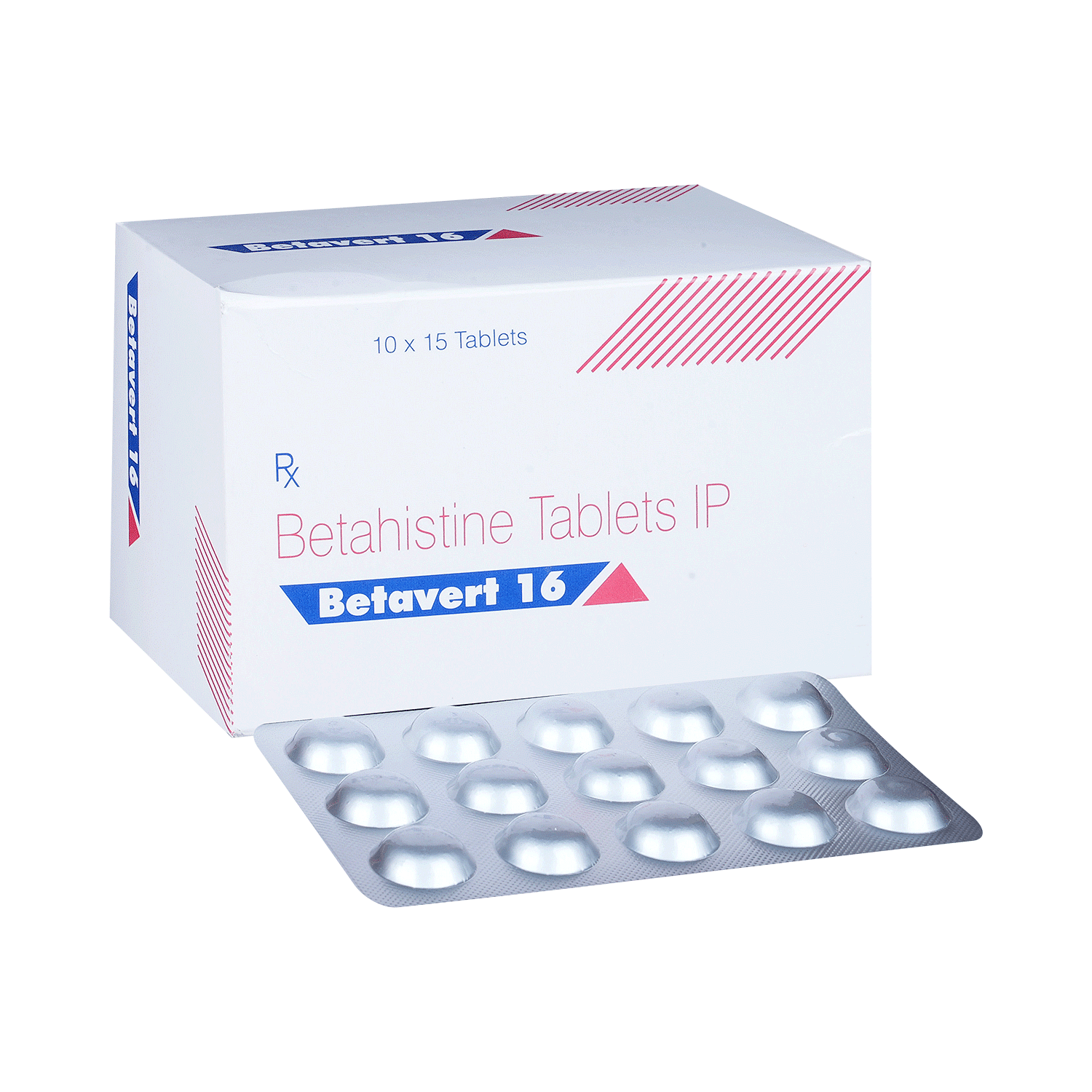
Betavert 16 Tablet
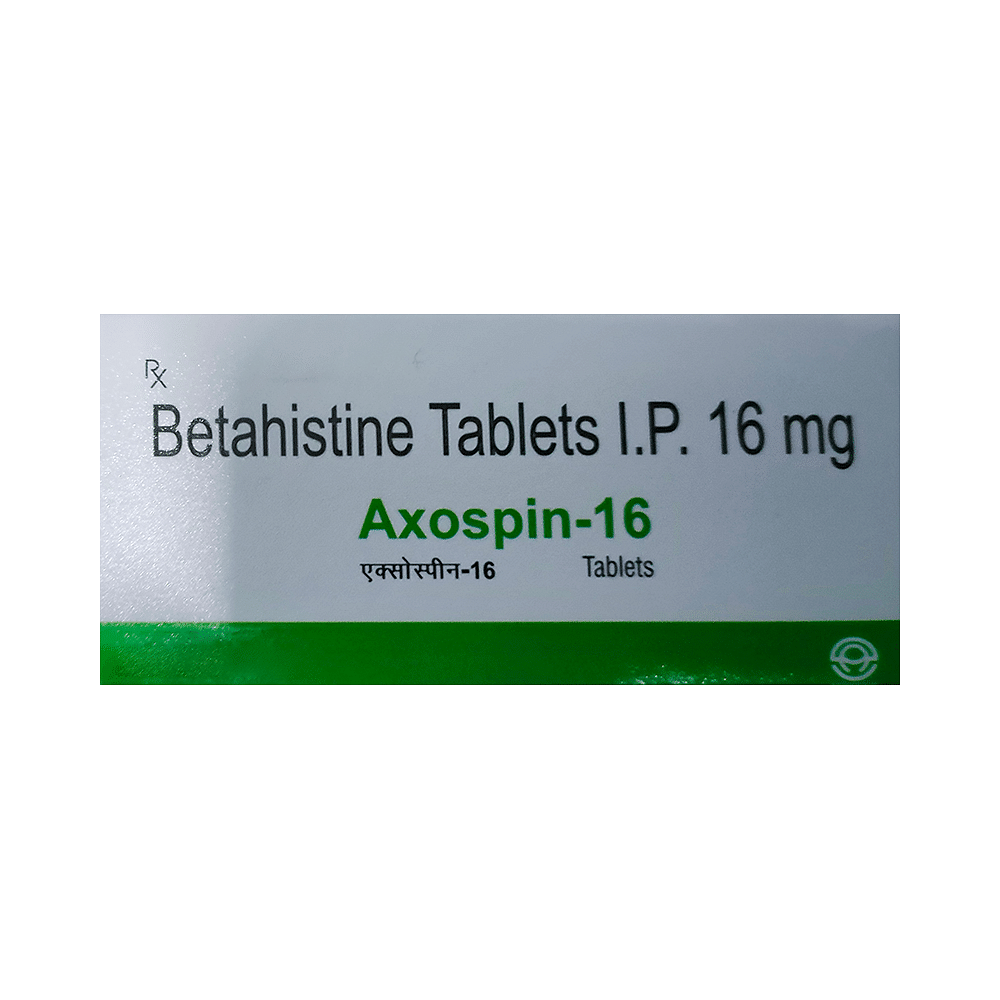
Axospin 16 Tablet
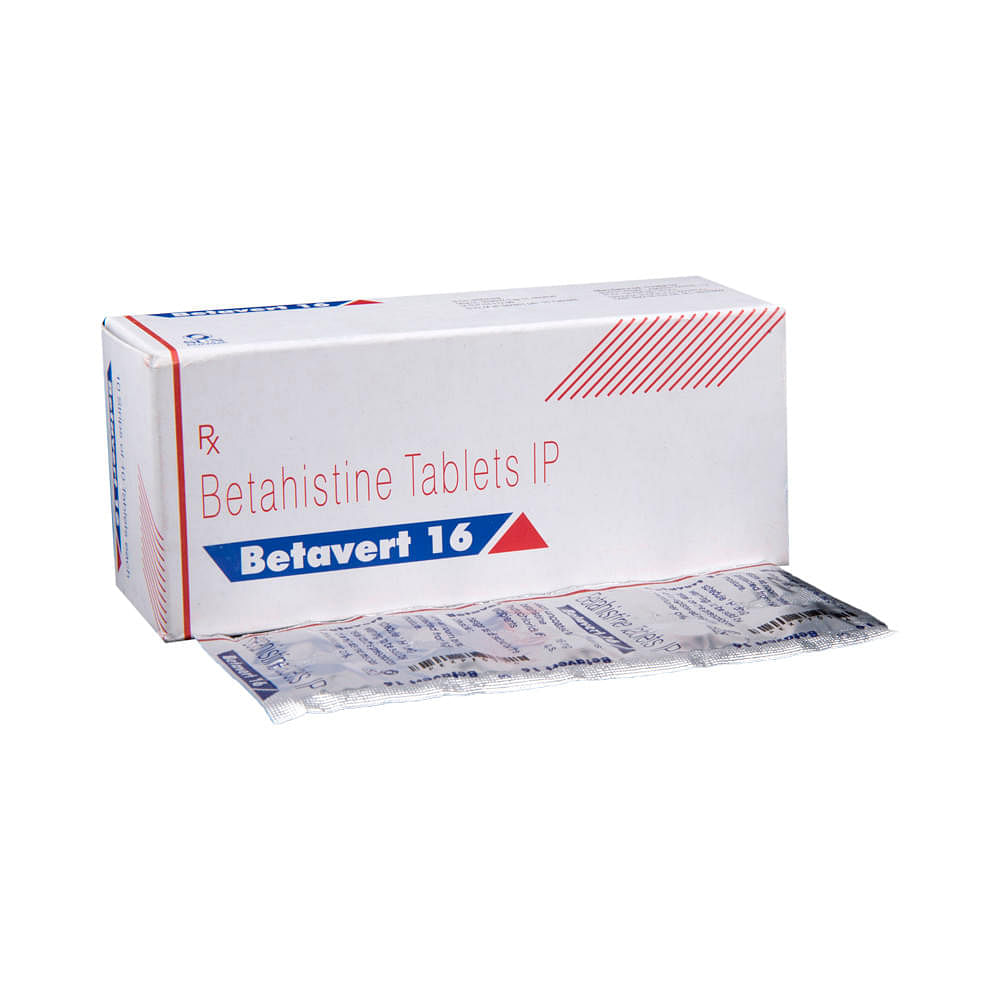
Betavert 16 Tablet
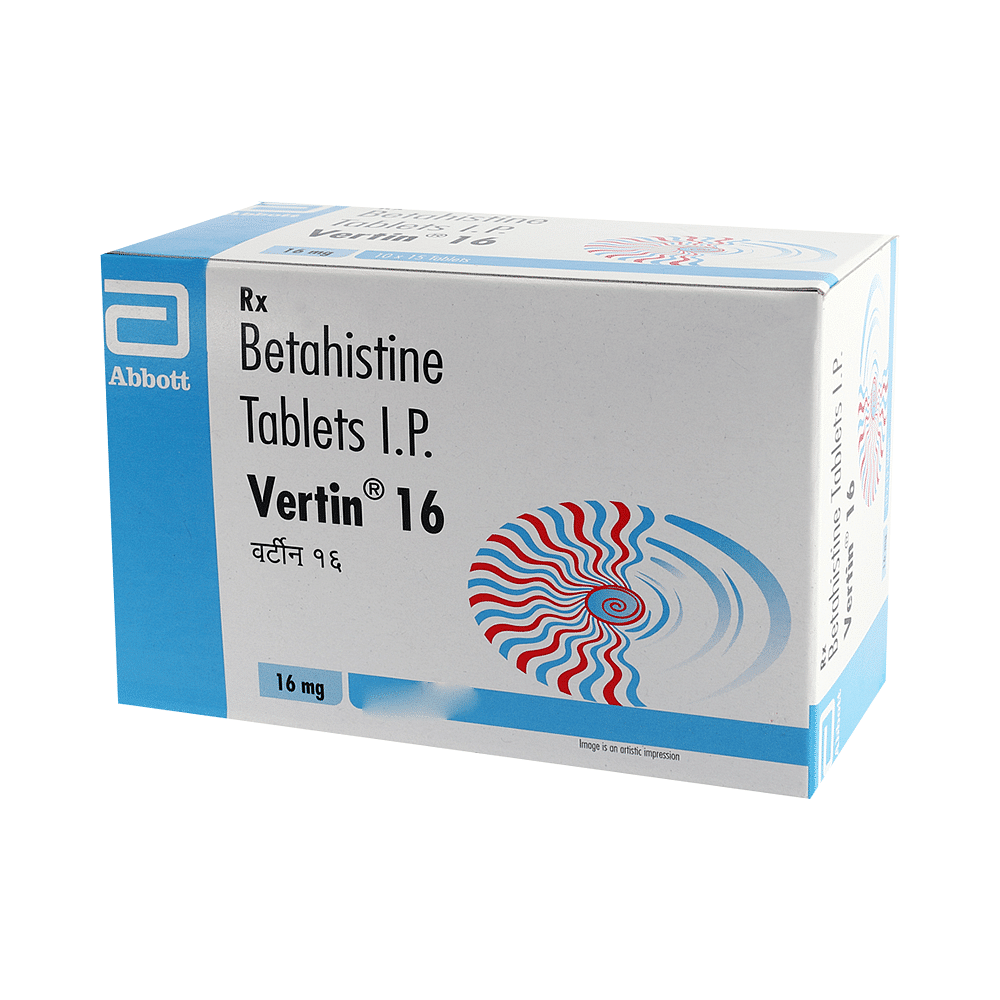
Vertin 16 Tablet

Avert 16 Tablet

Idoreg 16mg Tablet

Menier 16mg Tablet

Vertof 16mg Tablet

Vetigo 16mg Tablet
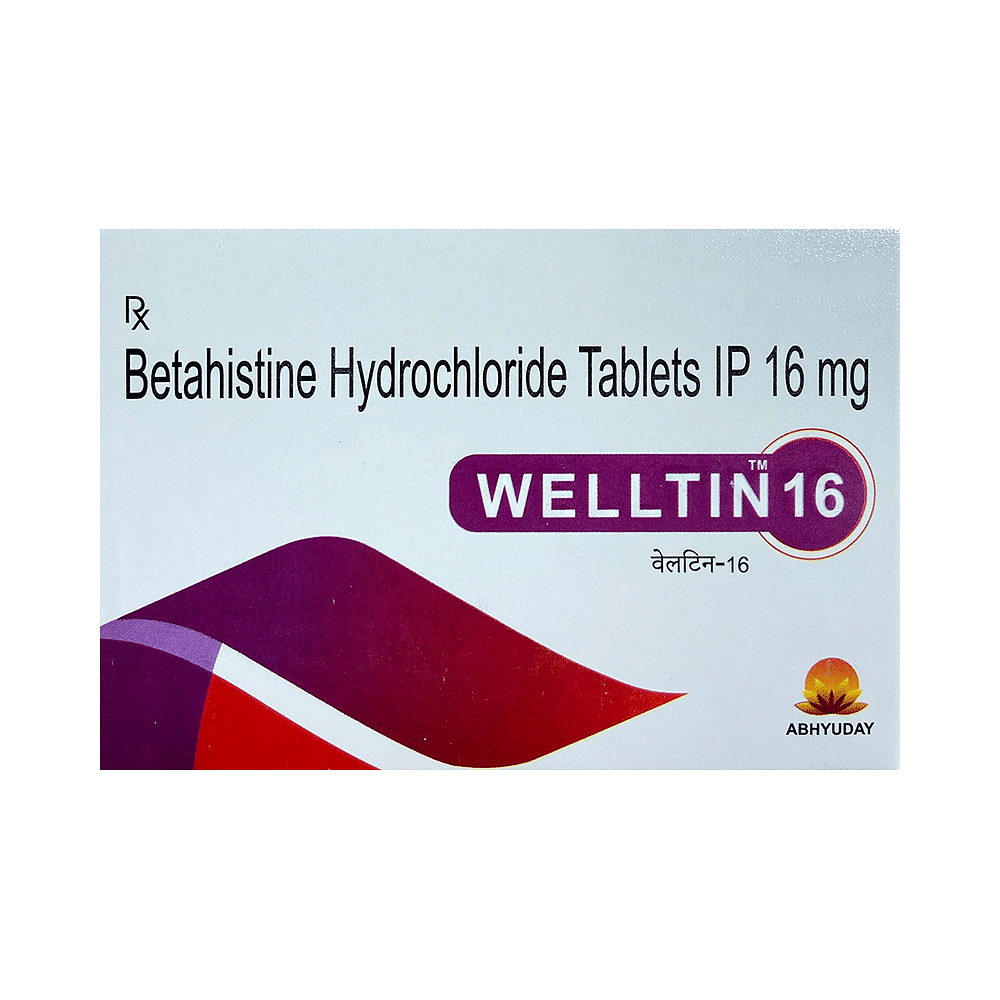
Welltin 16 Tablet
Frequently asked questions
What is Meniere's disease? Does it go away?
Meniere's disease is a disorder affecting the balance and hearing organs in the inner ear. Symptoms include vertigo (dizziness), fluctuations in hearing, tinnitus (ringing in the ears), and pressure in the ears. Dizziness can cause nausea and vomiting. Treatment for Meniere's disease varies based on individual factors and requires consultation with a healthcare professional. Open discussion with your doctor is essential to determine the best treatment strategy for your specific case.
Is Vertix 16 Tablet effective?
Vertix 16 Tablet is likely to be effective if used as directed by your healthcare provider. Do not stop taking it even if you experience improvement in your condition, as early discontinuation may result in symptom return or worsening. Always follow the prescribed dosage and schedule.
What are the triggers for Meniere's disease?
Meniere's disease can be triggered by factors such as stress, fatigue, emotional distress, other illnesses, and changes in air pressure. Certain foods, including dairy products, caffeine, alcohol, and high-sodium foods, can also contribute to symptoms. A low-salt diet (2 grams/day) may help manage vertigo in patients with Meniere's disease.
What if I forget to take a dose of Vertix 16 Tablet?
If you miss a dose of Vertix 16 Tablet, take it as soon as you remember. If your next scheduled dose is approaching, skip the missed dose and follow your regular dosage schedule.
Is stress a reason for vertigo?
Stress can increase or exacerbate existing forms of vertigo. However, it does not directly cause vertigo on its own.
What are the causes of vertigo?
Vertigo can result from various factors like sudden drops in blood pressure or dehydration. Many individuals experience lightheadedness when transitioning from a lying or sitting position quickly. Other potential causes include motion sickness, certain medications, and inner ear problems (e.g., Meniere's disease or acoustic neuroma). It is crucial to note that vertigo can sometimes be a symptom of other disorders such as multiple sclerosis or following head trauma.
How long should Vertix 16 Tablet be taken?
The duration of Vertix 16 Tablet treatment is variable, depending on the individual. Some people experience rapid improvement while others may need more time. It's essential to adhere to your prescribed dosage and schedule and follow your healthcare provider's guidance for optimal results. If you have any doubts, please consult your doctor.
What are the common side effects of Vertix 16 Tablet?
Vertix 16 Tablet may cause mild stomach issues such as nausea, abdominal pain, bloating, and stomach swelling. Taking Vertix 16 Tablet with food may reduce these potential side effects.
Is Vertix 16 Tablet effective?
Vertix 16 Tablet is likely to be effective if used as directed by your healthcare provider. Do not stop taking it even if you experience improvement in your condition, as early discontinuation may result in symptom return or worsening.
What if I forget to take a dose of Vertix 16 Tablet?
If you miss a dose of Vertix 16 Tablet, take it as soon as you remember. If your next scheduled dose is approaching, skip the missed dose and follow your regular dosage schedule.
How long should Vertix 16 Tablet be taken?
The duration of treatment with Vertix 16 Tablet varies from patient to patient. Some people experience rapid improvement while others may take a longer time. It's important to follow your prescribed dosage and schedule, and consult your healthcare provider if you have any questions or uncertainties.


